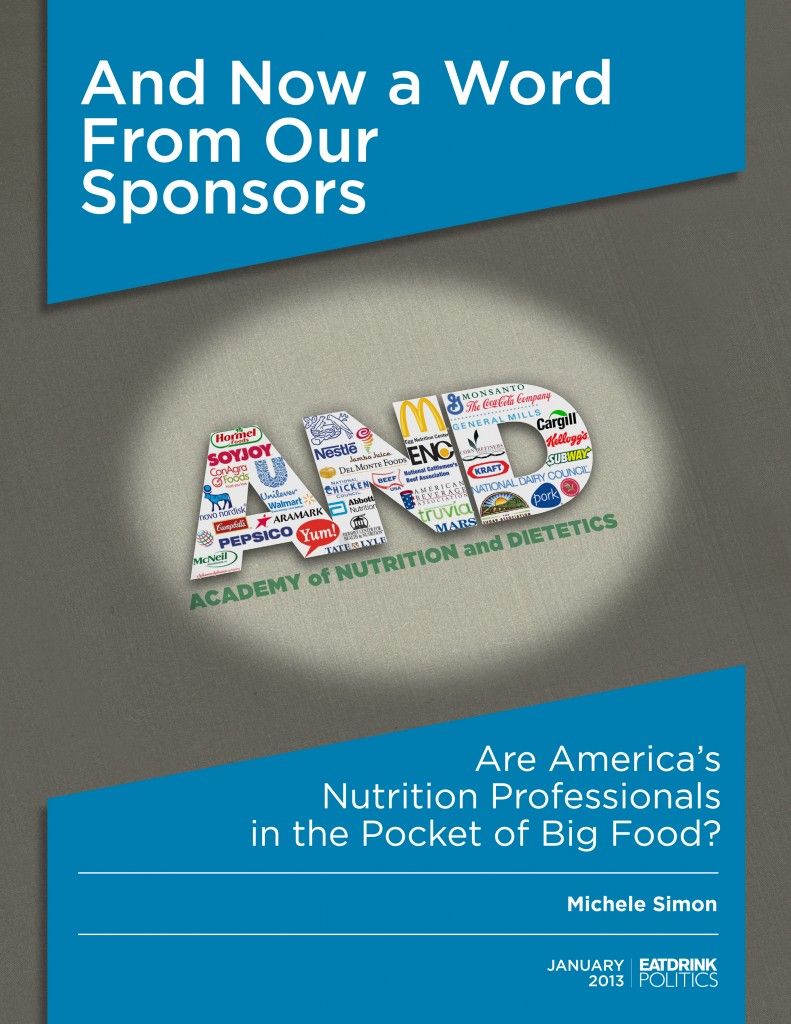The Academy of Nutrition and Dietetics, the nation’s largest trade association for dietitians, is being well-fattened by agri-business and the junk food industry, according to a scathing new report by Eat Drink Politics, an independentnon-profit watchdog group.
The free 50-page reportentitled “And Now a Word From OurSponsors…Are America’s Nutrition Professionals in the Pocket of Big Food?”details the deeply entrenched  financial relationships between AND and its 38 food industry sponsors, which include the National Cattleman’s BeefAssociation, ConAgra, General Mills, Kellogg, PepsiCo, Coca-Cola and Kraft.
financial relationships between AND and its 38 food industry sponsors, which include the National Cattleman’s BeefAssociation, ConAgra, General Mills, Kellogg, PepsiCo, Coca-Cola and Kraft.
The AND represents approximately 74,000 RDs and other nutrition professionals, and has total annual revenue of $34 million, according to Michelle Simon, a public health attorneywho founded Eat Drink Politics, and authored the new report. Ms. Simon is best known for her 2007 report on the dangers of alcoholic energy drinks which led to federal action to ban these products.
She notes that in 2011 AND generated $1.85 million in sponsorships, with it’s educational foundation bringing in another $3.4 million. Sponsorships for nutrition symposia at AND’s annual meeting are $50,000 a piece.
It is no big surprise that AND has strong financial ties to Big Food and Big Ag; most organizations for health professionals depend on industry support. But “Now a Word…” stands out for its thorough reporting, and its in-depth look at the conflicts of interest within an influential and increasingly vocal organization.
The AND has as one of it’s stated missions: “optimizing the nation’shealth through food and nutrition.” AND leaders and prominent members often play an advisory role in food, nutrition and public health policy decisions. Some are advisors to legislators, others play important roles in food purchasing and nutrition planning at schools, hospitals and nursing homes.
At the state level, AND and its local chapters have been aggressively pursuing legislation that would bar other non-RD nutrition professionals from using the term “nutritionist” or “nutrition consultant.”
With great skill and an arsenal of details, Michelle Simon challenges the credibility and objectivity of AND, and raises serious questions about the influence of commercial support on professional advocacy organizations.
END







